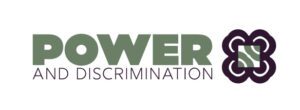It’s About: Decolonizing Psychotherapy
Among the papers published under the Power, Discrimination, and Privilege in Individuals and Institutions special edition was a groundbreaking study shedding light on the impact of socially-conferred privilege in psychotherapy.
This study examined the dynamics of race and gender within therapy sessions, uncovering how socially-conferred privilege influences the therapeutic relationship and the professionalization process of psychologists. Through qualitative interviews with practicing psychologists, the researchers identified a core paradigm which consists of an idealized image of what a perfect therapist should be. This ideal often mirrored historical figures in the field, predominantly older, white men.
Interestingly, the study found distinct pathways towards achieving this ideal for BIPOC (Black, Indigenous, and Persons of Color) psychologists and white psychologists. BIPOC psychologists often faced imposter syndrome and persistent feelings of inadequacy, while white psychologists tended to downplay their whiteness and adapt their behavior to fit client cultural norms. These findings raise important questions about how graduate education, continuing education, and ethical codes in psychology contribute to the perpetuation of unobtainable and harmful therapist ideologies. Graduate training, for instance, often focuses on theories and techniques pioneered by white male figures, potentially marginalizing diverse perspectives.
To address these disparities, the study recommends decolonizing the curriculum by integrating diverse perspectives, acknowledging historical contributions from marginalized groups, and promoting cultural competence training for all students. Additionally, continuing education programs must update their content to reflect contemporary understandings of social privilege and responsiveness.
The study underscores the crucial point that psychologists must heal themselves before they can effectively heal others, especially in the context of racial dynamics.
The study underscores the crucial point that psychologists must heal themselves before they can effectively heal others, especially in the context of racial dynamics. This insight calls for a fundamental shift in how mental health professionals are trained and supported, emphasizing the importance of addressing race and privilege in psychotherapy education and practice.
Finally, the study highlights the need for further research to assess the extent to which professional ethics codes may reflect hegemonic colonial values. By critically examining these codes, the field of psychology can take meaningful steps towards promoting diversity, equity, and inclusion in psychotherapy.
Note: This series highlights articles from the recently published special issue of Frontiers in Psychology, “Power, Discrimination, and Privilege in Individuals and Institutions,” edited by Sonya Faber, Monnica T. Williams, Matthew D. Skinta, and Bia Labate.
Bergkamp, Jude, Sloan, Maeve O’Leary, Krizizke, Jack, Lash, Malea, Trantel, Noah, Vaught, Jason, Fulmer, Tessa, Waite, Ilana, Martin, Abigail M., Scheiderer, Cynthia, Olson, Lindsay. (2024). Pathways to the therapist paragon: a decolonial grounded theory. Frontiers in Psychology 14. https://doi.org/10.3389/fpsyg.2023.1185762
Art by Trey Brasher.

Shop our Collection of Psychedelic T-Shirts.
Take a minute to browse our stock:
Did you enjoy reading this article?
Please support Chacruna's work by donating to us. We are an independent organization and we offer free education and advocacy for psychedelic plant medicines. We are a team of dedicated volunteers!
Can you help Chacruna advance cultural understanding around these substances?















